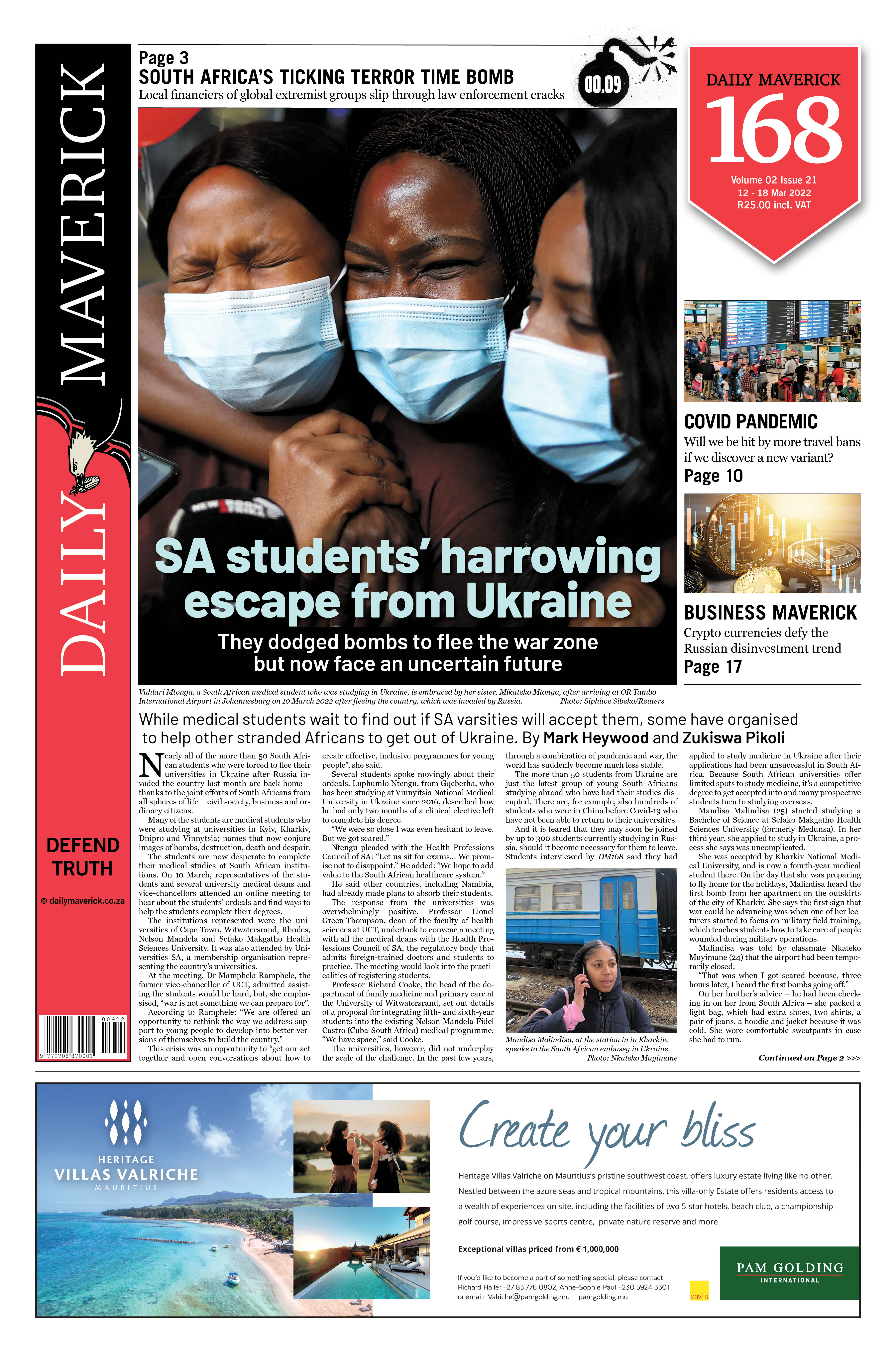As unfair as that might seem, economically it makes sense. Some conflicts have localised or regional effects, somewhat cut off from the broader linkages of the global economy. Others, due to the structural inequalities of the macroeconomy, disturbingly and depressingly, have global economic and geopolitical consequences. What the world faces in Ukraine is one of the latter.
A consequence of this war that is starting to become apparent is a potentially devastating impact on global food production. A food crisis, particularly in emerging markets, is starting to look a distinct possibility later this year. In the last two weeks, following the Russian invasion of Ukraine, prices of grain soared as shipments from Black Sea ports virtually ground to a halt.
According to S&P Global, Russia and Ukraine supply roughly a third of the world’s wheat. The reason both Stalin and Hitler were so determined to hold onto Ukraine – because it was the “bread basket of Europe” – continues to this day.
While wheat that is well stored can last for months, the supply chain risks a major disruption, the likes which the world experienced following Covid-19 lockdowns. With workforces decimated by the fighting as Ukrainians are recruited to serve in the defence of the country, reports are that the planting season for the 2022 harvest is being disrupted.
“If farmers in Ukraine don’t start planting any time soon there will be a huge crisis of food security. If Ukraine’s food production falls in the coming season, the wheat price could double or triple,” said Kees Huizinga, a Dutch wheat farmer in Ukraine interviewed by the Financial Times. This surge in wheat prices could fuel food inflation, which post-Covid-19 has been at record levels above 7%. Since the start of the war on 24 February, wheat futures have risen 57%, according to Bloomberg, and look set to skyrocket further.
Ukraine and Russia are disproportionately critical for wheat supplies in markets in the Middle East, South Asia and North Africa. A cut in supply from these key producers will also immediately raise prices everywhere, putting pressure on producers from South Africa to the US to meet the shortfall.
A lot of economics and finance is removed from the day-to-day reality of the majority of humanity. While share prices on the New York Stock Exchange may affect share portfolios of the wealthiest 0.1%, they do not have a direct impact on the lives of billions.
The price of commodities, food in particular, could not be more dissimilar; there can be no more direct linkage from economic supply-and-demand to all humanity than the price of food staples. We are all deeply affected, in particular those living in poverty, for whom food makes up a much larger proportion of their daily expenditure.
The last time wheat prices were at these levels — due to production declines in exporters such as Australia in 2007 and 2008 — protests spread through nearly 40 countries, from Haiti to Ivory Coast.
More recently, the jump in wheat prices in 2009 and 2010 was said to be a major factor behind the Arab Spring uprisings in the Middle East. The cost of food was a reason Mohamed Bouazizi set himself on fire in 2011 in Tunisia, the spark for protests that engulfed the Middle East and continue to shape its geopolitical dynamics.
Wheat-exporting economies such as South Africa stand to be affected negatively and to gain. South Africa exported 160 million tonnes of wheat last year. In bread-basket regions such as the Free State, farmers can expect record prices for their harvest. For consumers, however, a R15 loaf of bread may soon be a thing of the past, or at least contingent on increasingly lavish government subsidies.
As energy prices soar — oil rocketed as the US and EU mulled over cutting imports from Russia — consumers face a perfect stagflationary storm. The social and geopolitical implications of this are uncertain and complex. In South Africa, these dynamics look set to come to a head in mid- to late 2022, just as the ANC gears up for a bruising and critical election battle at its conference in December.
Should record energy and food prices result in the types of rioting and dissent seen in July last year, with President Cyril Ramaphosa looking incapable of guaranteeing an ANC majority in the next national election, rank-and-file ANC members will look elsewhere for a viable candidate. Ramaphosa’s future may be directly linked to the price of a loaf of bread.
The only thing for certain is that the rest of 2022 looks set to be extraordinarily unpredictable, unstable and terrifying. Strap yourselves in. DM168
This story first appeared in our weekly Daily Maverick 168 newspaper which is available for R25 at Pick n Pay, Exclusive Books and airport bookstores. For your nearest stockist, please click here.

















 Become an Insider
Become an Insider
Comments - Please login in order to comment.